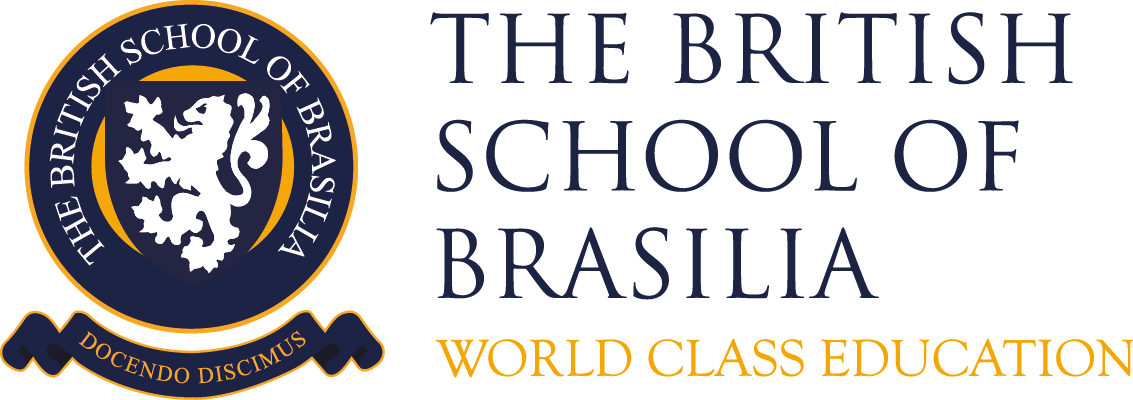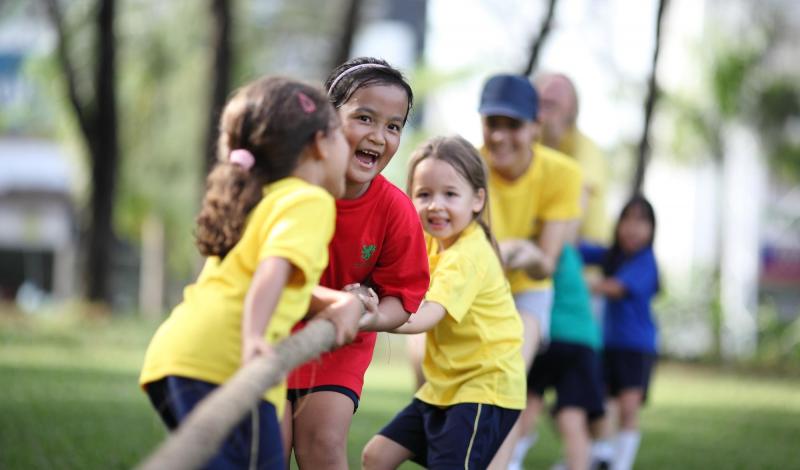Demystifying bilingual education
Demystifying bilingual education
Speaking two or more languages is critical to becoming a citizen of the world and we know that the sooner the child is exposed to these languages, the easier it will be to learn. However, having a bilingual child can often leave parents fearful and worried. This is because there is a myth that learning a second language combined with the mother tongue could confuse the child, causing damage to language acquisition. It is known, however, from several researchers, that bilingual education, besides not harming the acquisition of language, contributes to the cognitive development of children and represents a huge advantage in their experiences and knowledge.
Having studied bilingual education in several countries, Psychologist Elizabete Flory, PhD in bilingualism from the Institute of Psychology at the University of São Paulo, found some of these cognitive advantages for bilingual students. One of them would be the fact that the child proficient in two languages has a greater capacity of attention selection, being able to, in front of several stimuli, focus more quickly on the one that is considered more important. Another advantage is linked to an anticipation of metalinguistic awareness, that is, bilingualism would help the child to realize that the same object may have different words to represent it and to use these different words in context. The researcher says that these advantages cannot be considered as an increase in intelligence, but may reflect positively on some aspects of learning.
Supporting bilingualism:
During the bilingual immersion process, some parents may have "my child is wrong" or "my daughter is mixing languages" concerns. Such concerns are understandable since it is common for the child to blend languages, especially in the early stages of acquisition, where he is still familiarizing himself with rules and vocabulary. As your linguistic knowledge increases, the child will use less and less of this resource and make few exchanges from one language to another. To help your son or daughter during this process, here are some tips:
1 - Be patient with your child. Because the development of each individual happens in a particular way, it would not be possible to calculate exactly when the child will stop mixing the languages.
2 - Helping the bilingual child with the structures and vocabulary of the language at the time of speech is very important, but avoid making constant corrections that may inhibit it.
3 - Children tend to reproduce their parents' values, so even if you do not master the second language your child is learning, try to have positive attitudes toward it by presenting it as something useful and interesting.
4 - Create opportunities to learn this new language for your child whenever possible. You can stimulate him daily by talking about the words he reads or hears on the daily routes, supermarket, or by offering varied books and movies in the target language.
Remember also that being bilingual means not only being in touch with different languages, but also with the whole culture associated with those languages. This leads to the widening of the horizons of the child, making him see the world from different perspectives, resulting in less pre-judgments and more tolerance of differences. Thus, his or her gains in both cognitive and social development will be immeasurable.
Speaking two or more languages is critical to becoming a citizen of the world and we know that the sooner the child is exposed to these languages, the easier it will be to learn. However, having a bilingual child can often leave parents fearful and worried. This is because there is a myth that learning a second language combined with the mother tongue could confuse the child, causing damage to language acquisition. It is known, however, from several researchers, that bilingual education, besides not harming the acquisition of language, contributes to the cognitive development of children and represents a huge advantage in their experiences and knowledge.
Having studied bilingual education in several countries, Psychologist Elizabete Flory, PhD in bilingualism from the Institute of Psychology at the University of São Paulo, found some of these cognitive advantages for bilingual students. One of them would be the fact that the child proficient in two languages has a greater capacity of attention selection, being able to, in front of several stimuli, focus more quickly on the one that is considered more important. Another advantage is linked to an anticipation of metalinguistic awareness, that is, bilingualism would help the child to realize that the same object may have different words to represent it and to use these different words in context. The researcher says that these advantages cannot be considered as an increase in intelligence, but may reflect positively on some aspects of learning.
Supporting bilingualism:
During the bilingual immersion process, some parents may have "my child is wrong" or "my daughter is mixing languages" concerns. Such concerns are understandable since it is common for the child to blend languages, especially in the early stages of acquisition, where he is still familiarizing himself with rules and vocabulary. As your linguistic knowledge increases, the child will use less and less of this resource and make few exchanges from one language to another. To help your son or daughter during this process, here are some tips:
1 - Be patient with your child. Because the development of each individual happens in a particular way, it would not be possible to calculate exactly when the child will stop mixing the languages.
2 - Helping the bilingual child with the structures and vocabulary of the language at the time of speech is very important, but avoid making constant corrections that may inhibit it.
3 - Children tend to reproduce their parents' values, so even if you do not master the second language your child is learning, try to have positive attitudes toward it by presenting it as something useful and interesting.
4 - Create opportunities to learn this new language for your child whenever possible. You can stimulate him daily by talking about the words he reads or hears on the daily routes, supermarket, or by offering varied books and movies in the target language.
Remember also that being bilingual means not only being in touch with different languages, but also with the whole culture associated with those languages. This leads to the widening of the horizons of the child, making him see the world from different perspectives, resulting in less pre-judgments and more tolerance of differences. Thus, his or her gains in both cognitive and social development will be immeasurable.



